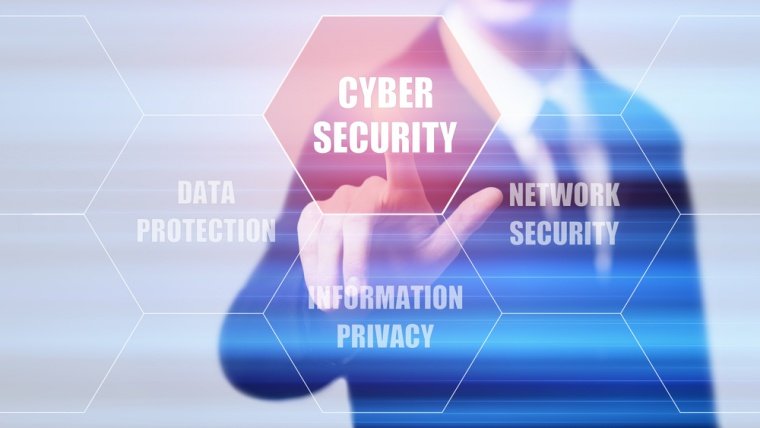With rising salaries and a massive global demand for qualified professionals, cybersecurity is an incredibly attractive industry to work in. There are thousands of unfilled cyber roles and the situation is getting worse; Symantec now predicts there will be 1.5 million unfilled cybersecurity roles by 2019.
The demand has been driven by increasing levels of cybercrime, explosive growth in the Internet of Things (IoT) technology and business worries centered on the EU General Data Protection Regulation (GDPR), introduced in 2018.
To prove their skills and knowledge, cyber professionals prove often aim for industry-recognized certifications. These qualifications build knowledge and validate it in the eyes of employers and clients. With that in mind, let’s take a look at five proven cybersecurity certifications – using aggregate data from PayScale — that will skyrocket your salary.
GIAC Certified Incident Handler (GCIH) salary – $88,500
GIAC’s GCIH (GIAC Certified Incident Handler) proves a professional’s ability to detect, respond to and resolve cybersecurity incidents with minimal damage to the business. This vendor-neutral qualification is aimed at professionals who want to work as Incident Handlers, but is also suited to system administrators and security architects.
While often contrasted to EC-Council’s Certified Ethical Hacker (CEH), the GCIH certification differs as it focuses on defense and response to cybersecurity incidents. The CEH, on the other hand, focuses its attention on offensive security, like hacking tools and techniques.
Professionals can further specialize their skills with advanced-level certifications from GIAC and the GCIH forms an excellent foundation for incident handling knowledge. Because of this, it’s a great way of proving knowledge and commands an average salary of $88,500.
ISACA Certified Information Security Auditor (CISA) salary – $95,000
As evidence of its importance within the cybersecurity field, ISACA’s CISA certification won SC Magazine’s best Professional Certification Programme in 2017.
The CISA is aimed squarely at IT auditors – professionals responsible for discovering security risks and inefficiencies within business information systems. This renowned certification validates an IT auditors knowledge in the assessment of vulnerabilities in an enterprise environment.
It’s tough to achieve and the CISA is designed for experienced IT auditors with five years’ experience in auditing, control, or cybersecurity. Because of this high requirement, this auditing certification commands a healthy $95,000 salary.
EC-Council Certified Security Analyst (ECSA) salary – $98,000
The ECSA (EC-Council Security Analyst) is the follow-up certification to the popular Certified Ethical Hacker. The certification builds on the knowledge of hacking tools covered in the CEH, providing a structured methodology for penetration testing.
To gain the ECSA certification, professionals must complete a hands-on penetration testing exam, consisting of multiple challenges. Obtaining the hash of a protected file or breaking into machines are both potential tasks that must be completed within the time limit.
Once the challenges are finished, professionals are then required to submit a penetration testing report, explaining the exploits and detailing fixes. Finally, to get the certification, four hours, multiple-choice exam must be taken (and passed).
Penetration testing — also known as ethical hacking — is an exciting and in-demand career. Organizations need penetration testers to secure their systems against cybercrime, and they’re willing to pay well for these skills – $98,000 per annum for ECSA-certified professionals to be exact.
Plus, this is only the second level of a three-tier track. The final level of EC-Council’s penetration testing track is the LPT Master and holders of this expert-level certification will undoubtedly see their salaries rising further.
(ISC)2 CISSP salary – $102,000
You’ve heard the phrase before and it remains true: (ISC)2’s CISSP is the gold standard security certification. The CISSP is designed for professionals in managerial roles or as a benchmark for professionals aiming for top-level security roles, like the Chief Information Security Officer.
CISSP holders are ultimately responsible for an organization’s security blueprint. They control risk management, make strict security decisions and will face greater responsibility if things go wrong.
This ‘gold standard’ certification is aimed at senior security professionals at the top of their career and should only be attempted by veterans with at least five years’ experience.
The CISSP certification is tough and passing the lengthy exam is a large undertaking. Adding it to your resume, however, will qualify you for some of the best roles and salaries in the industry. CISSP holders earn an average median salary of $102,000.
ISACA Certified Information Security Manager (CISM) salary – $116,000
The CISM certification tops this list and is another popular qualification from ISACA. It’s designed for security managers – professionals responsible for the design, management, and implementation of network and computer security technology and policies.
The Certified Information Security Manager (CISM) is a top credential for IT professionals who want to validate their ability to manage, develop and oversee information security systems in the enterprise.
The CISM aims to validate an IT security professional’s knowledge of enterprise-level security management. CISM holders possess proven skills in security risk management, program development and management, governance, and incident management and response. That’s why it brings in the highest salary on the list, at an impressive $116,000 per annum.
The best time to prove your cyber skills
“The market for IT security professionals is poised for another strong year,” notes CompTIA Senior Vice President Tim Herbert. “The security job category was one of the faster growing IT occupations during 2016.”
As a barrage of catastrophic global cyberattacks accelerates IT security to the top of the C-suite agenda, the demand for cyber skills is unlikely to cease soon – especially with dangerous threats on the horizon.
Image Credit: Shutterstock/Alexander Supertramp








